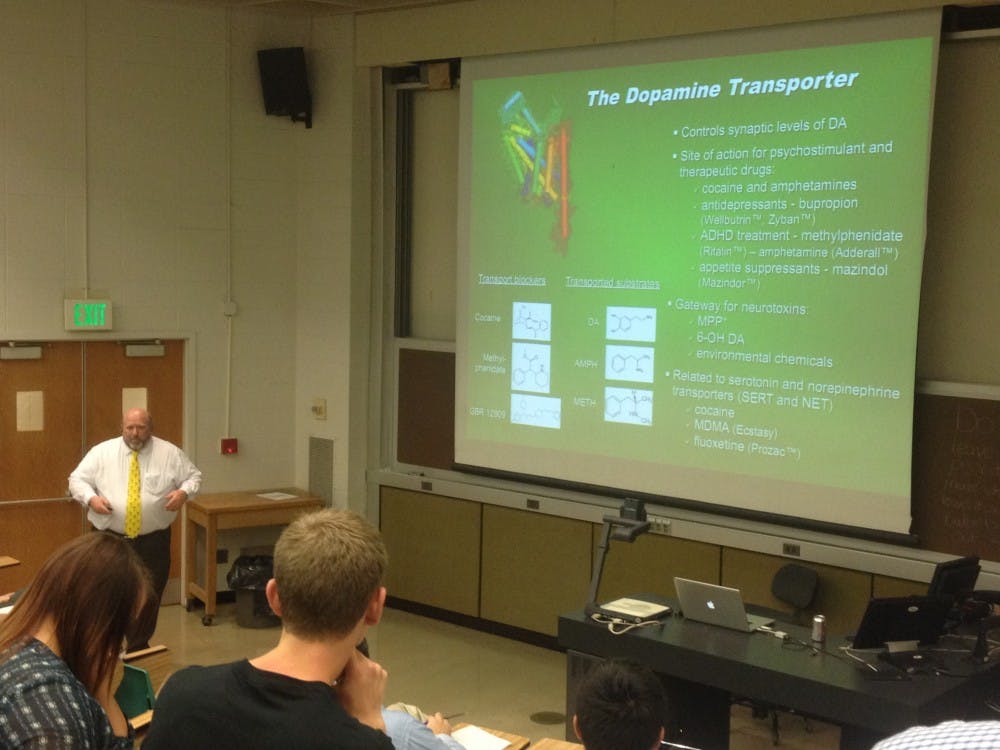Anxiety disorders and depression continue to be leading mental illnesses, and one researcher and guest lecturer wants to make sure students know there is a scientific reason for the way they feel.
On Sept. 11, James Foster, a professor from the University of North Dakota School of Medicine and Health Sciences, spoke at Ball State about his research on dopamine levels influencing mental health.
Foster said while he knows this topic can be hard to understand, he wants students to know their depression and anxiety is not wrong and can be scientifically explained.
“If I could give advice to those college students who struggle with depression and anxiety, I would tell them it’s important to understand that this is a chemical process and it’s like any other disorder or thing,” Foster said. “It’s a medical condition, so don’t worry about the stigma or think you are crazy, because that’s simply not true.”
Anxiety disorders, including depression, affect 40 million adults in the U.S., according to the Anxiety and Depression Association of America. Depression alone impacts 14.8 million adults each year.
Although these disorders can be triggered by heavy amounts of stress, Foster said it's important to understand that in some cases, there is a treatable chemical imbalance within the brain that should not be ignored.
Abnormal or altered dopamine levels (DA) within the brain can trigger many diseases such as depression, bipolar disorder, Parkinson’s disease and attention deficit hyperactivity disorder (ADHD).
“Dopamine is not just a static thing," Foster said. "It can increase and decrease and has essential roles in how it controls and alters the body, which can sometimes result in disease states."
The dopamine transporter, also known as DAT, controls the amount of dopamine within the brain. When the DAT is altered and high DA levels are cycled through the brain, it can trigger neurological diseases like depression. Through research and medication, this chemical imbalance can be treated.
Hannah Badger, a first-year graduate biology student, said she thinks people tend to overlook the steps that can bring scientists to medical breakthroughs with these disorders.
“When dealing with things like depression and anxiety, education needs to be there," Badger said. "A lot of times, these conditions are not fully understood, which can result in an over or under prescribed person. The spread of education will allow students to understand their issues and form their own medical, professional opinions.”
Though medication can be essential to the treatment process of depression and anxiety disorders, Cody Bennett, a first-year graduate biology student, said it’s also important not to overlook the little things that can bring happiness and relief — human interaction.
“Sometimes the best therapeutic effects can be found in just talking,” Bennett said. “When it comes to depression and anxiety, it’s a big deal to not bottle yourself up."
He said, at times, the biggest thing to do is to just try to get away from the situation and think of other things or laugh and joke around.
“There are a lot of people going through the same things, so never forget to just talk to people and form bonds that can help you in the long run," Bennett said.





